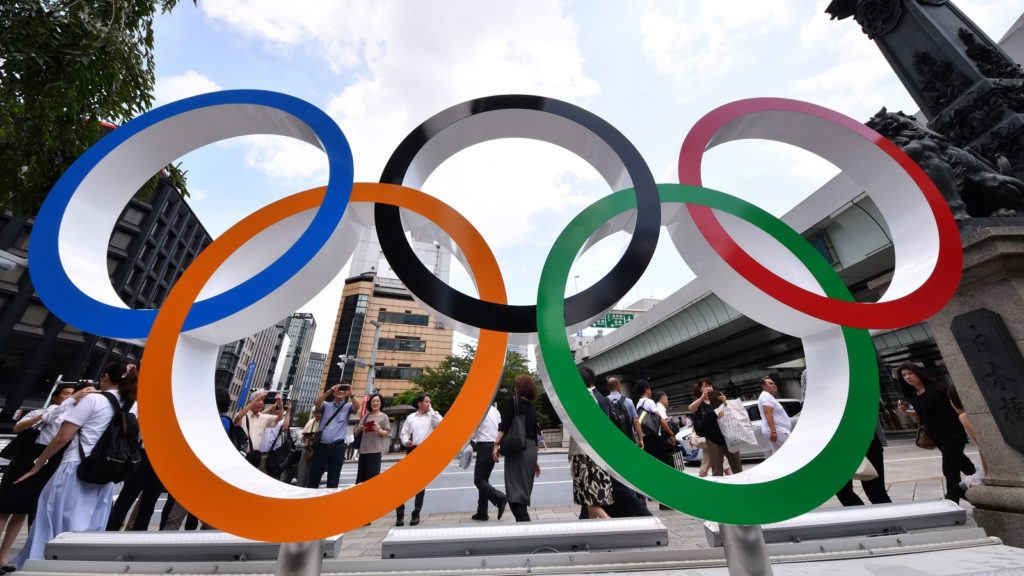
Except you have been living under the cave or rock or outside the planet Earth, you’d be aware the world is fighting a common enemy right now – COVID-19. This virus has practically shut all forms of human activities, confined us to staying safe while snuffing life out of thousands already. In the face of this reality, the International Olympic Committee has officially postponed this year’s summer Olympic games and Paralympics after coming to an agreement with Japanese Prime Minister Shinzo Abe that the Games “must be rescheduled to a date beyond 2020 but not later than summer 2021, to safeguard the health of the athletes, everybody involved in the Olympic Games and the international community.”
The Japanese government made a proposal for a one-year delay to IOC president Thomas Bach during a conference call; Abe describes Bach as supporting the proposal. The decision comes after IOC member Dick Pound framed postponement of the Olympics as a virtual certainty in light of the coronavirus disease pandemic in an interview on Monday. Either way, the IOC and local organizers were clearly poised to reschedule the Olympics, which was set for July 24 to August 9 this year but will be pushed back to yet-to-be-clarified dates in 2021. The Paralympics, meanwhile, are scheduled for August 25 to September 6 and will also be pushed back.
Many in the sports and public health communities will welcome the punting of the Olympics and the Paralympics to next year. The Olympics involves about 11,000 athletes, plus millions of coaches, spectators and volunteers. They interact with each other and touch shared physical surfaces. Those are conditions that could trigger infections and undermine public health. Even if spectators weren’t allowed to attend the Olympics or the Paralympics, athletes, trainers, coaches and others would find social distancing measures difficult, if not impossible, to follow. Many Olympic and Paralympic sports involve athletes in close proximity.
The IOC’s decision comes after mounting pressure from around the world. On Sunday, the Canadian Olympic Committee announced its decision to not send its athletes to the Olympics or the Paralympics unless those competitions were postponed. To that point, USA Gymnastics on Monday called for a postponement. Those petitions were made with consideration of the safety of athletes, whom were surveyed, and likely with consultation with key sponsors, too.
While many constituencies will welcome the Olympics and Paralympics being moved to 2021 as promoting important public health objectives, there will be unintended and unwanted consequences. The athletes will feel relieved to avoid the risk of contracting COVID-19 at an athletic event, some might nonetheless feel disappointed by not being able to compete. For some, it could be their last chance to compete at such a high-level event. The Olympics and Paralympics reflect the best athletes competing on the world’s stage with their nations cheering them on. The impact of postponements will go beyond mere feelings and sentiments. Postponements could trigger legal fallout. Consider what the postponements will mean for contracts negotiated by sponsors, networks and other entities in business with the IOC, the IPC and the Tokyo Organizing Committee. Those deals, which in some cases are worth billions of dollars, couldn’t be performed as worded if the games are moved to dates that aren’t contractually contemplated.
A simple example is NBC and the IOC signing off a $4.4 billion deal in 2011 that runs through the 2020 Olympics. A few years later, the deal was extended to 2032, with NBC agreeing to pay $7.8 billion. These dollar figures are based on NBC’s substantial research into viewership, promotion, advertising and related factors that influence the value of a broadcasting deal. Sponsors and local business could also financially suffer by the Olympics and Paralympics postponements.
It’s possible that the postponements of the Olympics and Paralympics will lead to relatively amicable renegotiations of contracts. Everyone involved will understand that a global pandemic wasn’t expected and that no one tied to the games is at fault. Yet if renegotiations fail, there could be substantial litigation or, depending on the dispute resolution terms within the contracts, arbitration and mediation.
As the move for next year, the IOC, IPC and local organizers must determine sensible safety policies for the approximately 15,000 Olympic and Paralympic athletes who will be competing. There’s a good chance COVID-19 will remain a danger in gatherings for many months. Likewise, medical experts expect it will take at least a year to develop a vaccine, get it approved and then manufacture and distribute it. How will Olympians and Paralympians be tested for COVID-19?
There is an endless list to analyze concerning the postponement but in the face of it all, it is the best decision made because life and good health trumps everything else.